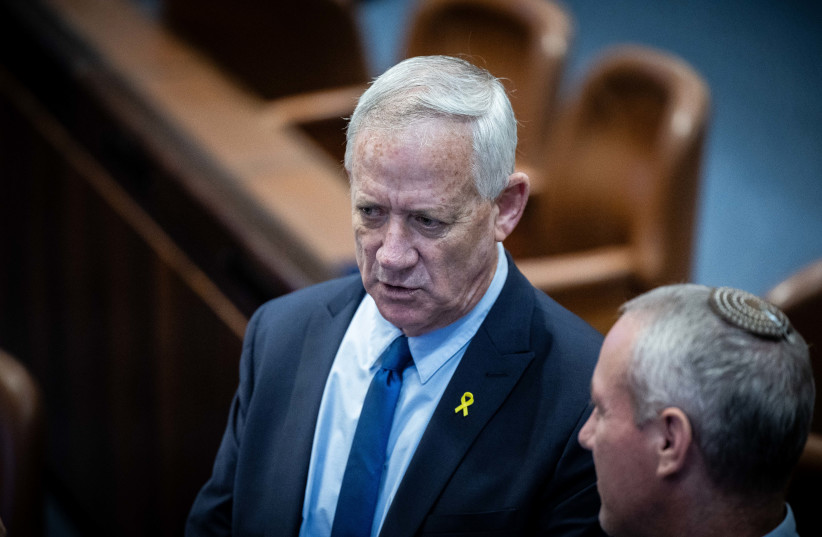MK Benny Gantz’s National Unity proposed on Tuesday a bill to cancel this year’s Knesset summer recess, which is scheduled to run for nearly three months, between July 29 to October 28.
According to a statement from the party, “Recessing for three months at this time, while 120 hostages are still in Hamas captivity, tens of thousands are evacuated from their homes, and thousands of servicemen and servicewomen are forced to leave their homes, their families, and their workplaces, harms oversight of the government in wartime, and [is not in] the public’s interest.
“At hand these days are critical bills and debates in different subjects such as the [ultra-Orthodox] draft bill, extent of service for mandatory and reserve soldiers, rehabilitating the North, reservists’ welfare, and returning evacuated residents to their homes. Just as soldiers do not recess, so should elected officials,” the party concluded.
The bill proposal came after Yisrael Beytenu MK Oded Forer earlier this week penned a letter to Knesset Speaker Amir Ohana with a similar request. Yisrael Beytenu initiated a similar move prior to the six-week Passover recess that began in April, but the recess was not canceled.
One of the longest summer recesses in Israel's history
The Knesset can continue to operate during recess without officially canceling the recess, but this requires special procedures and protocol. For example, the request to convene the Knesset plenum during recess requires at least 25 signatories; when the plenum convenes, there is a limit on the number of topics allowed and on the length of speaking time; and for committees to convene, approval must be given by either the Knesset Home Committee or the Knesset speaker.

In addition, the Knesset Home Committee may allocate in advance the number of debates that each committee can hold during the recess, without having to approve each debate individually. Thus, assuming the recess is not canceled, the Knesset Home Committee is expected to allocate a large number of debates for the Knesset Foreign Affairs and Defense Committee due to the war.
In addition, if a majority of members of Knesset (at least 61) demand that the plenum convenes to propose a no-confidence vote in the government, the speaker must convene the plenum within a week.
However, a more likely scenario for the opposition to attempt to topple the government is by passing a bill for the Knesset to disperse itself. This must go through the legislative process like any other bill, and Knesset Home Committee chairman MK Ofir Katz or Speaker Ohana, both members of the coalition’s Likud, can use their authority to freeze such a move during recess. The governing coalition thus has an incentive to keep the recess as is.
In a position paper sent to Katz on Sunday, Tal Elovits, a political science Ph.D fellow at the University of Milan and a former manager of the Knesset’s Labor faction, pointed out that the length of the upcoming summer recess, 91 days, is tied for the longest in Israel’s history – and far above the average of 77 days.
Despite National Unity’s bill and Forer’s letter, the Home Committee decided on Tuesday to limit all of the committees to seven debates during the recess, save for the Education, Culture, and Sports Committee, which will be allowed eight, and the Foreign Affairs and Defense Committee, which will be unlimited. In addition, each committee will be allowed to advance bills that are directly connected to the war and will be allowed four additional debates specifically aimed at oversight of issues regarding the war.
